Recent Blog Posts
Can Car Drivers Be Responsible for Causing Semi Crashes?
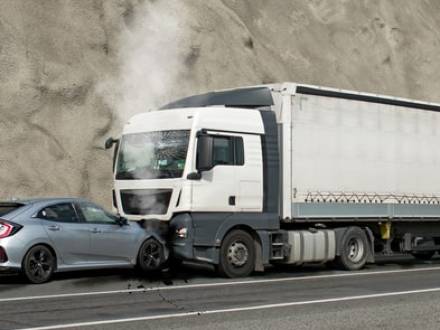 Lee County was the scene of a tragic accident on June 10th, 2025. According to witness reports, a pickup truck entered an intersection in front of a tractor-trailer. The semi hit the smaller truck in a T-bone collision that claimed the life of the pickup’s driver and critically injured her passenger. The semi’s driver was not hurt.
Lee County was the scene of a tragic accident on June 10th, 2025. According to witness reports, a pickup truck entered an intersection in front of a tractor-trailer. The semi hit the smaller truck in a T-bone collision that claimed the life of the pickup’s driver and critically injured her passenger. The semi’s driver was not hurt.
Semi accidents are often deadly. Some people believe that the semi driver is always responsible for causing these collisions, but that is not always true. If you were injured in a tractor-trailer crash, our knowledgeable Mount Prospect, IL personal injury lawyer knows how to determine fault, establish liability, and help you pursue the compensation you deserve.
How Can Another Driver’s Actions Contribute to Truck Accidents?
Because of a semi’s size and weight, it takes longer for a tractor-trailer to slow down or stop. If another motorist makes negligent errors, a truck driver may not have enough time or room to avoid a crash, even if they react immediately.
Who Is Responsible for Road Construction Zone Injuries?
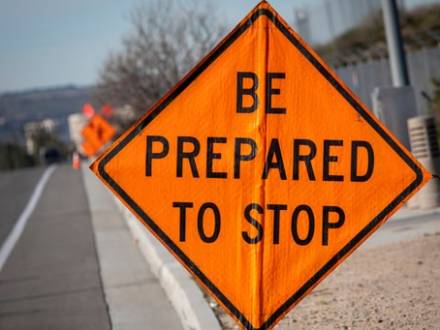 Summer is construction season for many roads in and around Chicagoland. I-294 reconstruction, ramp closures on the Kennedy Expressway, bridge repairs, and resurfacing projects are underway in June of 2025. Although infrastructure construction and maintenance are necessary, the resulting congestion and traffic delays can be extremely frustrating for travelers. Sadly, road construction zone accidents can also be deadly.
Summer is construction season for many roads in and around Chicagoland. I-294 reconstruction, ramp closures on the Kennedy Expressway, bridge repairs, and resurfacing projects are underway in June of 2025. Although infrastructure construction and maintenance are necessary, the resulting congestion and traffic delays can be extremely frustrating for travelers. Sadly, road construction zone accidents can also be deadly.
If you are injured or a loved one is killed in a road construction area collision, you could be entitled to compensation through a personal injury or wrongful death claim. You need the skilled advocacy of our experienced Arlington Heights, IL personal injury attorney if you hope to collect as much compensation as you deserve.
How Common Are Illinois Road Construction Zone Crashes?
In 2023, there were 6,323 work zone collisions in Illinois. A total of 1,573 motorists, passengers, pedalcyclists, pedestrians, and workers sustained injuries. These accidents also killed 20 drivers, three passengers, and one worker. Urban crashes accounted for 5,067 of the accidents, with 1,243 collisions taking place in rural areas. Approximately 29 percent of work zone accidents involved large trucks.
Why Do I Need a Lawyer for a Car Accident Claim?
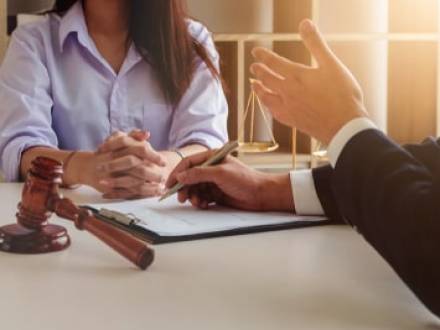 In 2023, around 820 traffic collisions occurred every day in Illinois, for a total of 299,133 accidents for the year. Those crashes killed 1,240 people and injured 87,573 more. These accidents did not harm only vehicle occupants. Pedestrians, bicyclists, and motorcyclists were also hurt and killed. The victim’s families were also affected in various ways.
In 2023, around 820 traffic collisions occurred every day in Illinois, for a total of 299,133 accidents for the year. Those crashes killed 1,240 people and injured 87,573 more. These accidents did not harm only vehicle occupants. Pedestrians, bicyclists, and motorcyclists were also hurt and killed. The victim’s families were also affected in various ways.
Many times, a personal injury or wrongful death claim can provide compensation after a motor vehicle collision. However, getting the full amount you deserve is challenging unless you have a dedicated Rolling Meadows, IL personal injury attorney on your side.
How Can an Attorney Help After a Motor Vehicle Crash?
You may wonder if working with an attorney to pursue your accident claim will really make a difference. After all, how hard could it be to fill out some paperwork? The fact is, these cases are much more complex than most people realize. Trying to handle your claim alone is often a costly mistake.
Which Medical Specialties Have the Most Malpractice Suits?
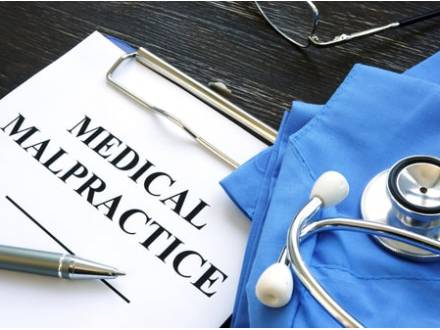 Anyone can make a mistake. In many cases, those errors do not have severe repercussions. However, when a medical provider makes mistakes, patients can be harmed. General surgeons and obstetricians/gynecologists are the most likely to be sued for medical negligence. In fact, more than 63 percent of physicians in those specialties have had at least one claim filed against them.
Anyone can make a mistake. In many cases, those errors do not have severe repercussions. However, when a medical provider makes mistakes, patients can be harmed. General surgeons and obstetricians/gynecologists are the most likely to be sued for medical negligence. In fact, more than 63 percent of physicians in those specialties have had at least one claim filed against them.
Not every kind of adverse patient event results from medical malpractice. If you suffered harm from a preventable medical error, our skilled Cook County, IL medical malpractice attorney can help you get the compensation you deserve.
What Is the Difference Between a Simple Medical Mistake and Medical Negligence?
Not all medical treatments are successful. Sometimes, a medical professional does everything right, but there are still adverse effects. For example, a patient could have an unexpected allergic reaction to a medication that is commonly prescribed for her ailment. A treatment plan that follows care standards might not produce the desired effect. While unfortunate, a simple mistake does not usually indicate medical negligence.
Easter Weekend Crash Deaths Were the Highest in Over a Year
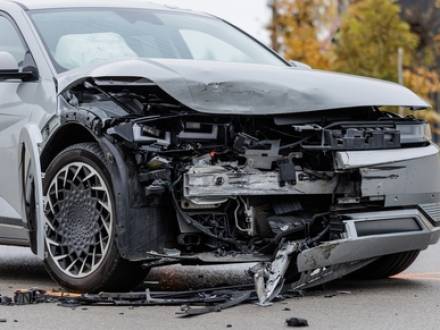 Three separate Chicago car crashes in a 24-hour period on Easter weekend, 2025, claimed four lives and injured two more. March 12th-13th, 2024, was the last time this occurred in the city. In two of those accidents, drivers apparently lost control of their vehicles. The third, however, was reportedly caused by a driver running a red light and crashing into two other vehicles. Only one person involved in these crashes did not report an injury.
Three separate Chicago car crashes in a 24-hour period on Easter weekend, 2025, claimed four lives and injured two more. March 12th-13th, 2024, was the last time this occurred in the city. In two of those accidents, drivers apparently lost control of their vehicles. The third, however, was reportedly caused by a driver running a red light and crashing into two other vehicles. Only one person involved in these crashes did not report an injury.
When a traffic death occurs, eligible survivors may be able to secure compensation through wrongful death and survival actions. However, you need evidence proving that another party’s negligence is what caused the car accident and the resulting fatality. Our skilled Chicago personal injury attorney can investigate the collision, establish liability, and work to maximize your compensation.
Do Insurance Companies Pay Injury Claims Fairly?
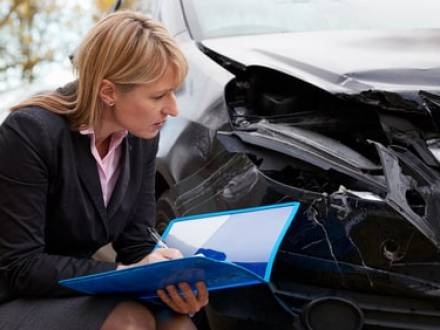 So, you have been injured in an accident that someone else caused. In a perfect world, you could file a personal injury insurance claim and promptly receive a fair payment that covers all your financial and non-financial losses without any argument. In reality, insurance companies are businesses that focus on their own profitability. To do that, they will likely try to reduce the amount they pay you, or they could deny your claim outright.
So, you have been injured in an accident that someone else caused. In a perfect world, you could file a personal injury insurance claim and promptly receive a fair payment that covers all your financial and non-financial losses without any argument. In reality, insurance companies are businesses that focus on their own profitability. To do that, they will likely try to reduce the amount they pay you, or they could deny your claim outright.
Most insurers are large companies with teams of lawyers. You need an experienced Cook County, IL personal injury lawyer on your side to tip the scales in your favor.
How Do Personal Injury Claims Work?
In most personal injury cases, you need evidence proving that someone else was responsible for causing your injuries and related damages, whether through negligence or an intentional action. For example, negligent driving errors like speeding, tailgating, and failing to yield the right of way often cause accidents that produce injuries and deaths. An intentional act might be an assault. Medical malpractice, nursing home neglect and abuse, and premises liability cases also fall under personal injury, each with different types of negligence or intent.
Who Is Liable If a Stolen Vehicle Causes an Accident?
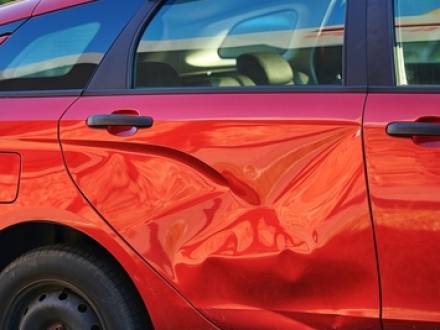 The suspect in a Cook County crash that happened on March 19th, 2025, apparently had a busy day. According to police, the suspect began by allegedly stealing a Bedford Park police car, which was later abandoned when the car became disabled. From there, after an alleged carjacking, the suspect obtained a USPS truck. Finally, the postal truck collided with a car in Bridgeview on Roberts Road. A mother and two young children were injured in the crash. As of now, the suspect is reportedly in police custody.
The suspect in a Cook County crash that happened on March 19th, 2025, apparently had a busy day. According to police, the suspect began by allegedly stealing a Bedford Park police car, which was later abandoned when the car became disabled. From there, after an alleged carjacking, the suspect obtained a USPS truck. Finally, the postal truck collided with a car in Bridgeview on Roberts Road. A mother and two young children were injured in the crash. As of now, the suspect is reportedly in police custody.
In 2022, 38,649 vehicles were reported stolen in Illinois, with 28,545 of those thefts in Cook County. 1,655 of Chicago vehicle thefts involved carjacking. The odds are that you have probably driven close to a stolen car in Chicagoland. If a stolen vehicle causes a collision that injures you, your pursuit of compensation will have complications. Our knowledgeable Cook County, IL personal injury lawyer can face these challenges head-on to help you collect the compensation you deserve.
If I Am Injured in a Slip and Fall Accident, Can I Sue?
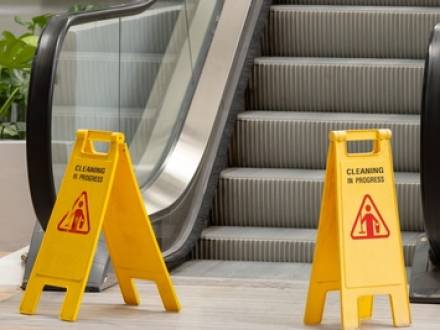 Did you know that around 40 million people visit hospital emergency rooms every year due to injuries? Falls are the top cause of these injuries. Although tripping and falling over your own feet usually does not qualify, some slip and falls could make you eligible for compensation through a premises liability claim.
Did you know that around 40 million people visit hospital emergency rooms every year due to injuries? Falls are the top cause of these injuries. Although tripping and falling over your own feet usually does not qualify, some slip and falls could make you eligible for compensation through a premises liability claim.
These cases are often challenging, requiring investigations to gather supporting evidence. You do not have to handle your investigation or claim alone; a skilled Rolling Meadows, IL personal injury attorney can take appropriate action on your behalf.
How Much Is My Truck Accident Claim Worth?
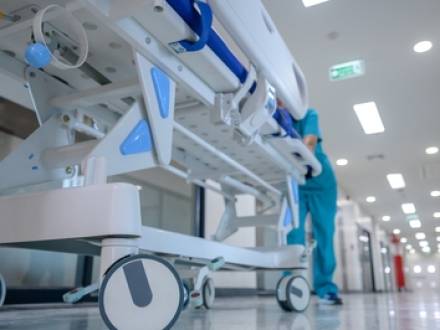 As of February 19th, 2025, preliminary data for 2024 reveals that 6,673 Illinois traffic accidents involved large trucks. These crashes caused 3,191 injuries and 147 fatalities. A personal injury or wrongful death claim can provide compensation for injured victims or their families after a truck accident, and one of the first questions claimants have is how much their case is worth.
As of February 19th, 2025, preliminary data for 2024 reveals that 6,673 Illinois traffic accidents involved large trucks. These crashes caused 3,191 injuries and 147 fatalities. A personal injury or wrongful death claim can provide compensation for injured victims or their families after a truck accident, and one of the first questions claimants have is how much their case is worth.
It would be great if we could give you an average settlement amount, but no such thing exists. Your Cook County, IL truck accident lawyer has to examine your case’s unique factors carefully before we can tell you how much compensation you should receive. We offer free consultations to assess your eligibility for filing a claim and explain your legal options.
What Kinds of Crashes Cause the Most Severe Injuries?
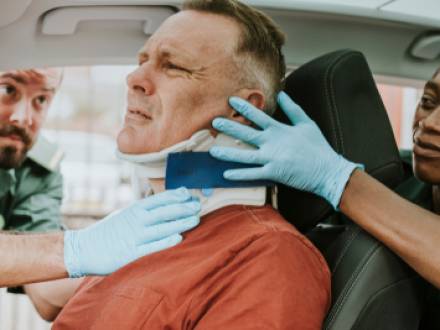 In 2022, Illinois saw 298,347 motor vehicle crashes, for an average of 817 per day. Those collisions produced 83,783 injuries and 1,268 fatalities. Every hour, more than nine people were injured. While some accidents are less likely to cause serious injury, some kinds of collisions are typically more dangerous. If someone else is at fault for a car, motorcycle, pedestrian, or truck crash that injures you, you may be entitled to compensation.
In 2022, Illinois saw 298,347 motor vehicle crashes, for an average of 817 per day. Those collisions produced 83,783 injuries and 1,268 fatalities. Every hour, more than nine people were injured. While some accidents are less likely to cause serious injury, some kinds of collisions are typically more dangerous. If someone else is at fault for a car, motorcycle, pedestrian, or truck crash that injures you, you may be entitled to compensation.
What kinds of crashes are more likely to cause severe injuries or fatalities? Will the liable insurance company pay your claim fairly? For your best chance of success, work with an aggressive Cook County, IL personal injury lawyer who has won similar cases.






